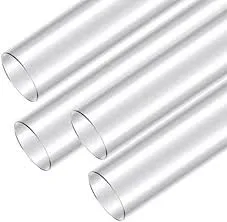Oktoba . 15, 2024 04:00 Back to list
Creating Engaging Presentations with PP Board Techniques and Tips
Exploring the Benefits and Applications of PP Board
PP board, or polypropylene board, has emerged as a highly versatile material in various industries due to its unique properties and capabilities. Made from polypropylene, a thermoplastic polymer, PP board is known for its lightweight nature, durability, and resistance to chemicals and moisture. These attributes make it an excellent choice for a multitude of applications across different sectors.
One of the key advantages of PP board is its lightweight composition. This feature significantly reduces shipping and handling costs, making it an economically viable option for businesses that require transportation of materials. In addition, its lightweight nature allows for easy installation, facilitating swift project completions, whether in construction, signage, or display production.
Exploring the Benefits and Applications of PP Board
PP board is also highly resistant to chemicals and moisture, which further expands its application range. Industries such as packaging, agriculture, and construction frequently utilize this material for its ability to resist corrosion and deterioration when exposed to harsh substances or wet environments. For instance, in the packaging industry, PP board can be used to create durable containers that protect products from moisture and chemicals, ensuring that goods remain safe during transport and storage.
pp board

In terms of versatility, PP board can be easily fabricated and customized. It can be cut, folded, or printed on, allowing it to be transformed into various shapes and sizes to meet specific project requirements. This adaptability is especially beneficial for marketing and advertising firms that use PP boards to create eye-catching signs and displays to attract customer attention.
Sustainability is an increasingly important factor in material selection today. PP board can be a more environmentally friendly alternative compared to other plastics. It is recyclable, meaning that post-consumer waste can be reprocessed into new products, thus reducing the environmental impact. Furthermore, the manufacturing process of PP boards can be optimized to minimize waste, contributing to more sustainable production practices.
In addition to its industrial uses, PP board has found its way into educational and creative sectors. Teachers often use it in classrooms for presentations and projects, while artists utilize it for creating sculptures and other forms of art. The ability to easily manipulate PP board makes it a favorite among DIY enthusiasts and hobbyists, further demonstrating its widespread appeal.
In conclusion, PP board stands out as a remarkable material that combines lightweight design, durability, chemical and moisture resistance, and versatility. Its applications span across various industries, from packaging and construction to education and art, showcasing its adaptability and practical benefits. As industries continue to seek sustainable and cost-effective materials, the use of PP board is likely to grow, solidifying its place as a staple in modern manufacturing and design. Whether for commercial or creative purposes, PP board offers an effective solution tailored to meet diverse needs in today's dynamic market.
-
Durable PP Rigid Sheet: Lightweight, Chemical Resistant Solutions
NewsAug.21,2025
-
PVC Grey Sheet for Extraction: Chemical Resistant & Durable
NewsAug.19,2025
-
Durable PVC Pipe Fittings for Plumbing & Irrigation Needs
NewsAug.18,2025
-
HDPE Steel Belt Reinforced Spiral Corrugated Pipe | High Strength
NewsAug.17,2025
-
HDPE Pipe Fittings: Durable, Leak-Proof Solutions
NewsAug.16,2025
-
Premium CPVC Sheet: High-Temp & Chemical Resistant Solutions
NewsAug.15,2025

